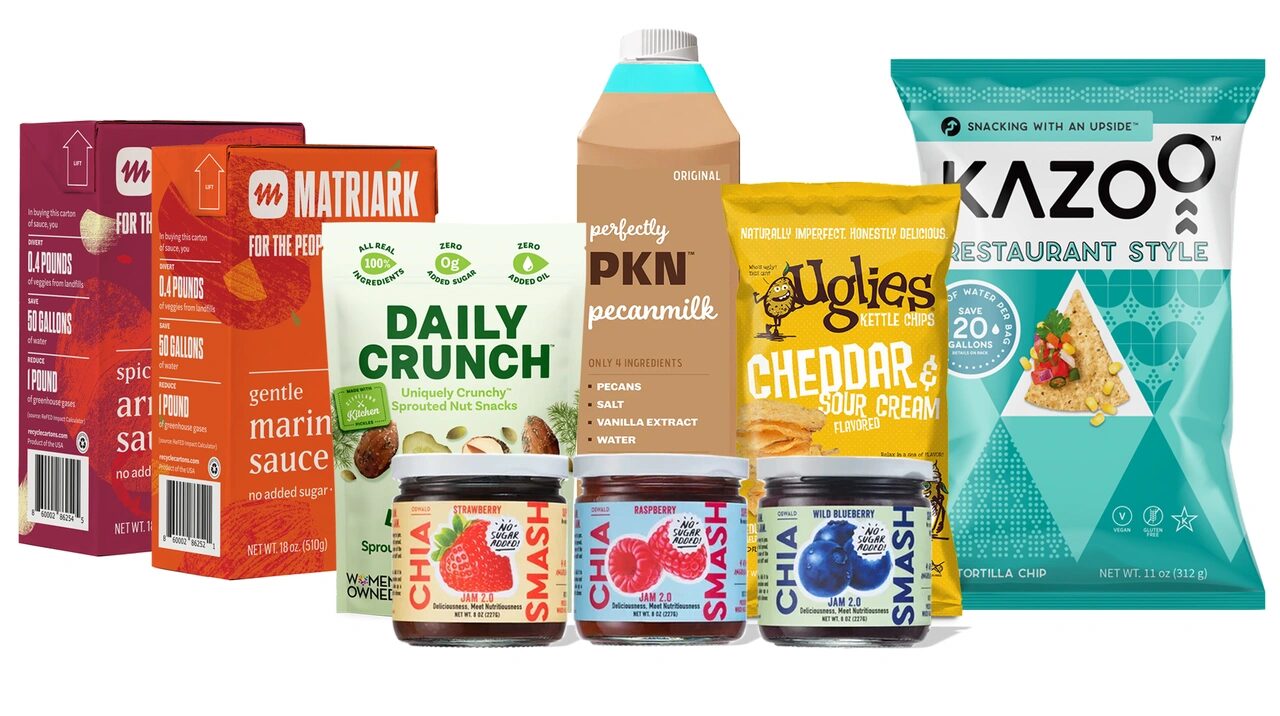Upcycled Food Association: Leading the Charge Against Food Waste
Food waste is one of the greatest challenges facing our planet, with as much as 40% of food produced globally going uneaten. Enter the Upcycled Food Association (UFA)—a membership-based trade organization leading the way in transforming food waste into innovative, delicious, and sustainable products.
Through education, certification, and a vibrant network of over 225 companies, UFA is redefining how we think about the food we discard. By turning surplus ingredients and manufacturing byproducts into high-quality, upcycled products, UFA not only prevents waste but also contributes to a healthier, more sustainable food system.
What Is Upcycled Food?
Upcycled food is all about finding value in waste. Instead of sending imperfect or surplus food, manufacturing byproducts, and unused ingredients to landfills or animal feed, upcycling gives them a second life.
By utilizing these waste streams, upcycled food companies create new products that reintegrate these ingredients into the food system. The result? Reduced food waste, healthier products, and a sustainable impact on the environment.
According to UFA, upcycled food:
• Prevents waste: By intercepting food that would otherwise go unused.
• Enhances nutrition: Many discarded parts of food (like peels, seeds, and stems) are nutrient-dense.
• Supports innovation: Upcycled food spans diverse categories, offering opportunities to rethink how we produce and consume food.
In essence, upcycled food isn’t just about sustainability—it’s about reimagining our relationship with food.
The Mission of the Upcycled Food Association
Founded just three years ago, UFA has already made a significant impact in the upcycled food industry. Their mission is to reduce global food waste by helping brands turn waste streams into valuable food products.
To achieve this, UFA provides a variety of services, including:
1. Membership Network
With over 225 companies in its membership, UFA creates a collaborative space for entrepreneurs, brands, and consultants to share resources, stories, and solutions.
2. Education and Resources
UFA offers tools and guidance to help companies understand their waste streams and find innovative ways to create new products.
3. Expert Advisory Program
Members gain access to expert consultants who help with product development, marketing, and business strategies tailored to upcycled food.
4. Certification Program
UFA’s certification program allows brands to use an Upcycled Certified™ logo on their packaging. This helps consumers identify and support upcycled products, while also showcasing the brand’s commitment to sustainability.
Why Upcycled Food Matters
Food waste is a massive issue that affects not just the environment but also public health and economic stability. According to UFA, 40% of food grown globally goes uneaten, a waste of resources like water, labor, and energy.
Environmental Benefits
When food waste ends up in landfills, it produces methane, a potent greenhouse gas that contributes to climate change. By diverting food waste through upcycling, companies can significantly reduce methane emissions while creating sustainable products.
Nutritional Advantages
Discarded food parts like peels, seeds, and stems are often rich in nutrients—even more so than the portions typically consumed. Upcycling brings these valuable nutrients back into our food supply, offering healthier options to consumers.
Economic Impact
Upcycling helps reduce losses across the food supply chain by turning waste streams into revenue streams. This creates economic opportunities while solving a pressing global issue.
The Certification Program: A Seal of Sustainability
One of UFA’s standout initiatives is its Upcycled Certified™ program, which ensures transparency and accountability in the upcycled food industry.
What Does the Certification Cover?
The certification applies to products sold in the U.S. and Canada (with plans for global expansion). To qualify, a product must:
• Use ingredients that would otherwise go to waste.
• Clearly communicate its environmental impact.
• Meet UFA’s rigorous standards for sustainability and traceability.
This certification helps brands connect with eco-conscious consumers and demonstrate their commitment to reducing food waste.
A Growing Global Network
While UFA is based in the United States, its reach extends far beyond. The organization includes members from over 20 countries, highlighting the global nature of food waste and the opportunities for collaboration across borders.
Their certification program currently applies to products sold in the U.S. and Canada, but companies from anywhere in the world can join the association and participate in its initiatives.
How UFA Supports Members
For brands interested in entering the upcycled food industry, UFA offers a variety of programs and resources tailored to their needs:
1. Understanding Waste Streams
UFA helps companies identify and evaluate their current waste streams, offering insights into how these can be transformed into valuable products.
2. Access to Experts
Through their expert advisory program, UFA connects members with consultants specializing in everything from product development to marketing strategies.
3. Networking Opportunities
Members gain access to a vibrant network of like-minded entrepreneurs and innovators, creating opportunities for collaboration and shared success.
4. Educational Resources
UFA provides workshops, webinars, and guides to help members stay informed about trends, technologies, and best practices in upcycling.
Upcycled Food in Action: The Grocery Store of the Future
Walking through a grocery store filled with upcycled food products might feel like stepping into the future—but it’s a future that’s already here. UFA members are innovating across diverse categories, from snacks and beverages to meal kits and condiments.
Some examples of upcycled food products include:
• Chips made from vegetable scraps.
• Beverages crafted from surplus fruits.
• Protein powders from byproducts like spent grain.
These products not only reduce waste but also offer consumers delicious, nutritious, and environmentally friendly options.
Why Farmers and Producers Should Care
Farmers often see firsthand how much food goes to waste, whether due to imperfections, overproduction, or logistical challenges. UFA provides tools and connections to help farmers turn this surplus into profitable upcycled ingredients.
By participating in the upcycled food movement, farmers can:
• Reduce losses.
• Create additional revenue streams.
• Contribute to a more sustainable food system.
The Future of Upcycled Food
The upcycled food industry is still young, but its potential is enormous. As more consumers become aware of the environmental and nutritional benefits of upcycled products, demand is expected to grow exponentially.
UFA is at the forefront of this movement, working to expand its certification program globally and supporting new innovations in the industry.
Join the Movement
Whether you’re a brand, farmer, or consumer, there’s a place for you in the upcycled food movement. Joining the Upcycled Food Association means becoming part of a global effort to reduce food waste, support sustainable practices, and create a healthier planet.
Together, we can turn waste into opportunity and transform the way we think about food.
Discover more from DG Speaks
Subscribe to get the latest posts sent to your email.





